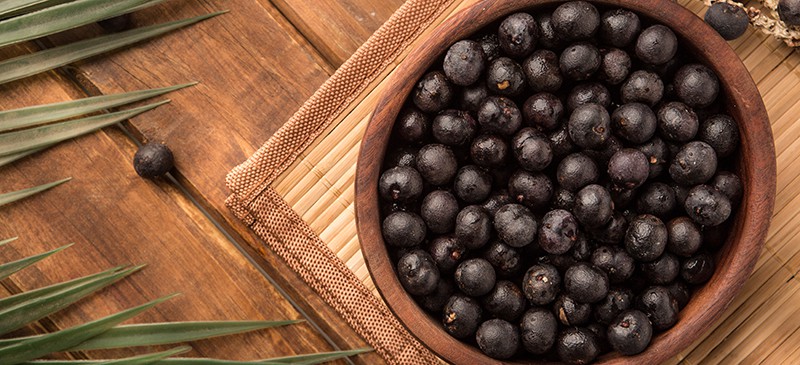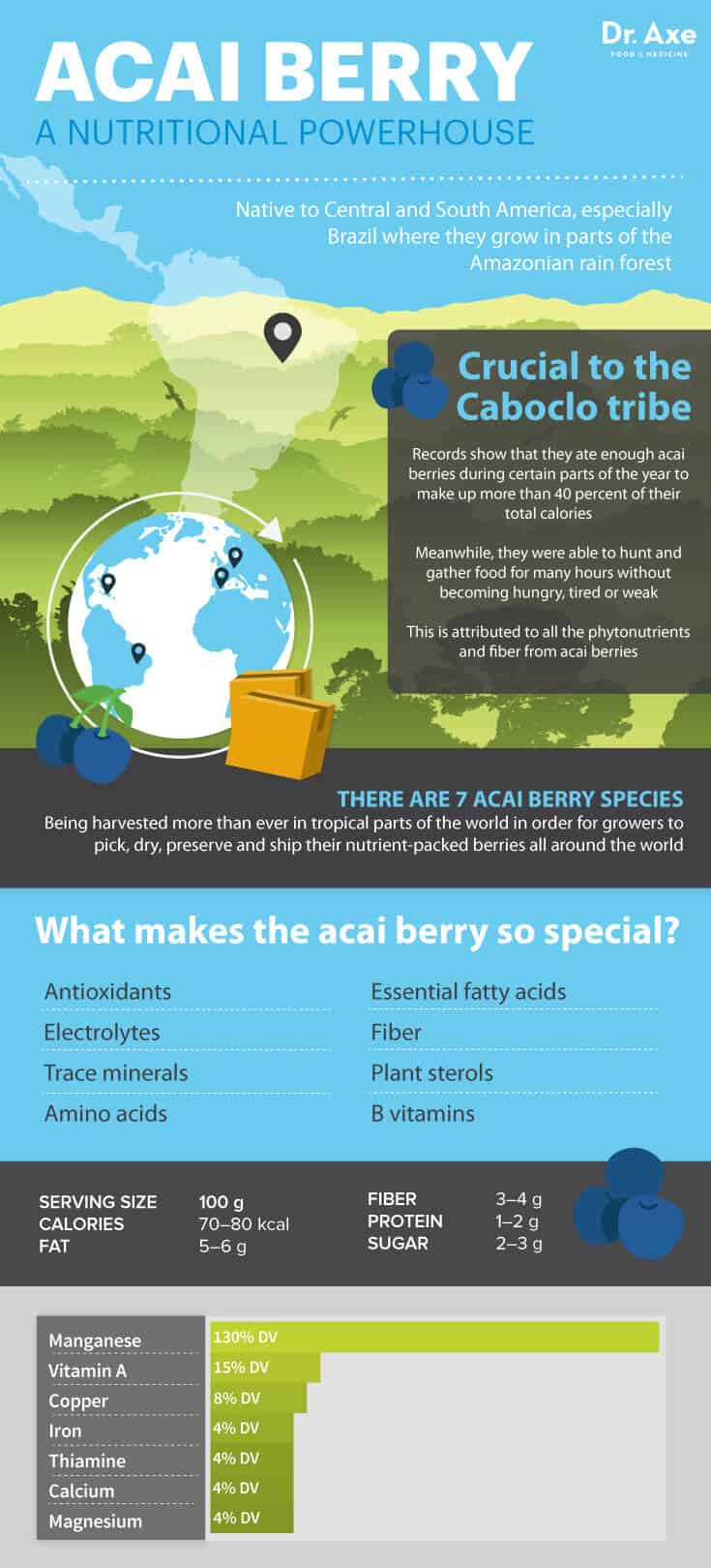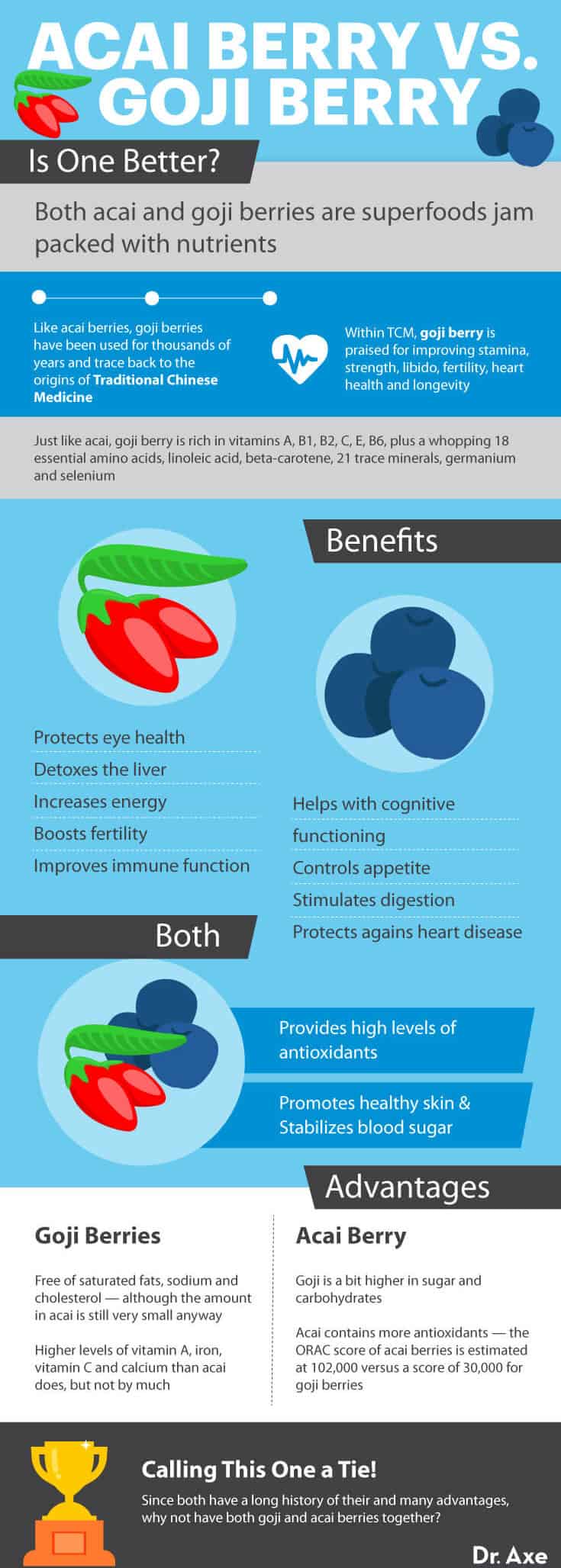This Dr. Axe content is medically reviewed or fact checked to ensure factually accurate information.
With strict editorial sourcing guidelines, we only link to academic research institutions, reputable media sites and, when research is available, medically peer-reviewed studies. Note that the numbers in parentheses (1, 2, etc.) are clickable links to these studies.
The information in our articles is NOT intended to replace a one-on-one relationship with a qualified health care professional and is not intended as medical advice.
This article is based on scientific evidence, written by experts and fact checked by our trained editorial staff. Note that the numbers in parentheses (1, 2, etc.) are clickable links to medically peer-reviewed studies.
Our team includes licensed nutritionists and dietitians, certified health education specialists, as well as certified strength and conditioning specialists, personal trainers and corrective exercise specialists. Our team aims to be not only thorough with its research, but also objective and unbiased.
The information in our articles is NOT intended to replace a one-on-one relationship with a qualified health care professional and is not intended as medical advice.
Acai Berry: 6 Proven Benefits, Including Clear Skin and Weight Loss
January 23, 2020

Anti-inflammatory, high-antioxidant foods keep you healthy and, if sick, can bring you back to good health. Berries certainly fit the bill, and the trendy berry of the moment with major anti-aging benefits is the acai berry.
There’s a reason health food stores are now pumping out more “acai bowls” than ever. What is acai berry good for? Perhaps more than any other type of fruit, acai berries have become synonymous with slowing down signs of aging and promoting good health.
Health benefits of acai are due to its valuable phytonutrients, especially anthocyanins, in addition to vitamin C, vitamin A and dietary fiber.
Some studies show that acai is even richer in protective antioxidants than cranberries, raspberries, blackberries, strawberries, blueberries or the goji berry. On top of providing many antioxidants just like other varieties of berries do, acai berries are also believed to help control your appetite, increase energy, help with many metabolic functions, and more.
What Are Acai Berries?
Acai berries are small, deeply purple-colored berries that grow on the acai palm tree (Euterpe oleracea). The acai tree is a species of palm tree in the Arecaceae plant family that is native to Central and South America, especially Brazil where they grow in parts of the Amazonian rain forest.
Acai palm trees have sustained traditional Brazilian and Amazonian populations, including the Caboclo tribe, with nutrients and calories for hundreds of years.
In fact, some records show that Caboclo people ate enough acai during certain parts of the year to make up more than 40 percent of the total calories they consumed! Supposedly they were able to hunt and gather food for many hours without becoming hungry, tired or weak, which many have attributed to all the phytonutrients and fiber they were obtaining.
While we don’t often hear about the differences between various types of acai berries, there are actually believed to be seven distinct. All grow from the plant called Euterpe, which is a type of tropical, tall palm tree that produces clusters of small berries that are a bit smaller than most grapes.
These tall acai trees (mature ones can grow up to 100 feet high) are now being harvested more than ever in tropical parts of the world in order for growers to pick, dry, preserve and ship this nutrient-packed fruit all around the world.
Nutrition Facts
Acai berry has more to offer than just a high antioxidant level — it also supplies many other electrolytes, trace minerals, amino acids, and even small amounts of essential fatty acids.
Acai comes loaded with numerous nutrients including:
- Antioxidants (anthocyanins, proanthocyanidins, protocatechuic acid, procyanidins and epicatechin, polyphenols, vitamins A, C and E)
- Dietary fiber
- Healthy fatty acids including monounsaturated fats and omega fatty acids (including omega-3, omega-6 and omega-9 and fatty acids like linoleic acid, palmitic acid and oleic acid)
- Certain essential amino acids
- Plant sterols (B-sitosterol, campesterol and sigmasterol)
- Small amounts of electrolytes (magnesium, potassium, phosphorus and manganese), B vitamins and trace minerals (iron, calcium, copper and zinc)
- B vitamins (B1, B2 and B3)
Various acai products (powders, juices, teas, smoothies, etc.) will differ in terms of their exact calories, antioxidant value, fat ratio and mineral content depending on the quality and purity. That being said, estimates show that about 1 heaping tablespoon of dried acai powder has about:
- 70–80 calories
- 5–6 grams of fat (mostly monounsaturated)
- 2–3 grams sugar
- 3–4 grams fiber
- 1–2 grams protein
- 15 percent DV vitamin A
- 2 percent DV calcium

Health Benefits
1. Very High in Antioxidants
Most of the health benefits of benefits of acai are due to its extremely high antioxidant content, which is why it’s said to have a high “ORAC score.”
ORAC stands for Oxygen Radical Absorbance Capacity; it’s a scale that measures the antioxidant properties of foods. ORAC values are used to classify foods by how many antioxidants they contain based on weight, and acai berry is very close to the top of the list.
Purple acai berries actually get their distinct color due to high concentrations of certain pigmented nutrients they contain, especially anthocyanins, which are found in many reddish-purple berry species. The concentration of antioxidants in acai is believed to be 10 times higher those in red grapes, and acai is estimated to have 10 to 30 times the amount of anthocyanins than red wine!
Because antioxidants are “free radical scavengers,” they help slow the process of oxidative stress that causes the body to deteriorate and develop ailments over time. Acai seems to be especially effective at superoxide and peroxyl scavenging; in fact, it’s been shown to have the highest score of any food reported to date against the peroxyl radical as measured by oxygen radical absorbance tests.
By helping the body remain more resilient to the effects of free radicals, acai is beneficial for nearly every bodily system: cardiovascular, endocrine, digestive, neurological, immune, etc. Although more research on the topic is needed, it may also help to prevent formation of cancerous cells.
2. Boosts Skin Health
For millennia people have used antioxidant-rich foods and herbal treatments, including acai and other berries, both topically and internally to prevent skin degradation and keep skin resilient and healthy looking.
Dark spots, wrinkles, fine lines, sagginess and discoloration are all tied to free radical damage within the skin. More people are now turning to acai oil and supplements to help get rid of scars, stretch marks, crow’s feet and dry skin. Consuming plenty of antioxidants also helps the body repair damaged skin cells faster and, therefore, a more youthful appearance is maintained.
3. Helps With Cognitive Functioning
Eating plenty of “brain foods” with antioxidants is a natural way to improve your focus and memory.
Inflammation and oxidative stress are two major underlying causes of cognitive problems, including loss of memory, dementia and other age-related mental disorders. Through a process of suppressing biological activity that degrades cellular integrity, acai pulp fractions seem to have protective effects over brain cells, which could have implications for improved cognitive and motor functions
Studies have found that fractions extracted from acai contain brain-saving nutrients, including anthocyanins such as cyanidin, delphinidin, malvidin, pelargonidin and peonidin, along with phenolics such as catechin, ferulic acid, quercetin, resveratrol, and synergic and vanillic acids.
Acai may also be protective against the damaging effects of stress, including disrupting hormonal balance and raising cortisol levels, which is why some consider acai berry to be an “adaptogen.”
4. Might Help Control Your Appetite and Boost Weight Loss
Why is acai good for weight loss? Some experts believe that acai berry may have certain appetite-suppressing abilities, thanks to how it affect on various hormones that control blood sugar levels and feelings of hunger, fullness and satiety.
It seems to help improve metabolic functions which helps the body work better absorbing nutrients, breaking down foods, eliminating waste and regulating the release of insulin.
It’s possible that acai facilitates with the breakdown of fats and carbohydrates and also helps lower the desire to overeat, which is a direct way to help stay at a healthy body weight.
5. Stimulates Healthy Digestion
Acai berry offers a good dose of fiber, but it seems to improve digestion in other ways beyond how most high-fiber foods do. Acai berry cleanses have become popular because of how these berries support the liver and kidneys, which have the job of processing and removing waste and toxins from the body.
On top of its ability to work as a kidney and liver cleanser, it’s also a natural colon cleanser, which means it prevents the accumulation of harmful substances and undigested matter from staying lodged in the colon where they can cause constipation and other digestive problems.
By improving the metabolism in general, acai berries are capable of speeding up bowel transit time, preventing foods from fermenting in the intestines and causing bloating, gas and constipation.
6. Offers Protection Against Heart Disease and Diabetes
Although it’s known best for its antioxidants, acai is also considered an anti-inflammatory food because it contains some monounsaturated fatty acids, in addition to dietary fiber and phytosterols that all help promote cardiovascular health.
Studies show that regularly drinking acai juice has positive effects on blood lipid levels and can protect the heart.
Acai is surprisingly rich in monounsaturated fas like oleic acid, the type found in heart-healthy extra virgin olive oil.
A small 2011 study investigated the effects of acai on metabolic syndrome, a term used to describe a condition that is defined by various risk factors for cardiovascular disease and/or type 2 diabetes. The study looked at changes in reactive oxygen species and metabolic pathways in a small group of overweight adults after taking 100 grams of acai twice daily for one month.
After measuring glucose, insulin, cholesterol and triglyceride levels before and after the study, subjects on average experienced improvements in fasting glucose and insulin levels, a reduction in total cholesterol, and borderline significant reduction in LDL-cholesterol levels.
The researchers concluded that acai might help overweight adults lower their odds of experiencing heart disease and diabetes, although more studies on a larger scale are still needed.
Related: How Maqui Berry Benefits the Gut, Heart, Skin & Eyes
Vs. Goji Berry
Both acai and goji berry are superfoods jam packed with nutrients. Like acai, goji berries have been used for thousands of years and trace back to the origins of Traditional Chinese Medicine.
- In TMC goji berry is praised for improving stamina, strength, libido, fertility, heart health and longevity.
- Just like acai, goji berry is rich in vitamins A, B1, B2, C, E, B6, plus a whopping 18 essential amino acids, linoleic acid, beta-carotene, 21 trace minerals, germanium and selenium.
- One of the advantages of goji berries is that they are free of saturated fats, sodium and cholesterol. While saturated fat is not a problem for most people and doesn’t usually pose a risk, some people can afford to consume less due to existing health conditions, although the amount in acai is still very small anyway.
- Goji also has higher levels of vitamin A, iron, vitamin C and calcium than acai does, but again they are neck and neck. However, in acai’s favor, goji is a bit higher in sugar and carbohydrates.
In terms of antioxidant concentrations, acai comes out on top, with an ORAC score that’s estimated at 102,000 versus a score of 30,000 for goji berries. Since both have a long history alongside many advantages, why not have both goji and acai berries together?
How to Use
Can you eat acai berries raw? Yes, however you may have trouble finding them. One of the biggest obstacles with growing, selling and using these berries is that just like all other berries, they are very perishable and fragile when it comes to with-standing high heat.
Acai berry is said to start spoiling within just 24 hours after being picked if it’s left out and not dried. This makes it hard for suppliers to grow and ship the berries, but also difficult for manufacturers to dry the berries into powder, or extract their nutrients to make supplements, without damaging the important phytochemicals they contain in the process.
- Because the natural degradation process of acai berry can happen so quickly, which results in many of its most beneficial compounds being lost, assuming you live outside Brazil, then your best bet is to buy dry/powdered acai berry.
- Many sellers now offer acai berry in forms including: freeze-dried powders, dried pulps, frozen juices, purees, teas and supplements, all of which preserve its valuable nutrients.
- While it’s becoming easier to find pure acai berry powder, you might also find it added to concentrated antioxidant supplements or extracts that use other berries, cherries and grapes as well.
- In terms of where to buy acai berry, look for frozen acai puree, powder, supplements and other products in health food stores or online.
Recipes
Already purchased some acai, and now you’re looking for some ideas to get started using it?
- There’s probably not a more convenient way to use acai than to blend it into a smoothie. You can also easily create your own “acai bowl recipe” at home (a type of trendy breakfast made from blended fruits/superfood powers that are topped with muesli or granola) using fresh, powdered or frozen acai along with other superfoods.
- Another interesting way to use this berry is how it was traditionally utilized in ancient Amazonian cuisines: combined with various vegetables and potatoes/squash to help sweeten them and bring out their natural flavors.
- For example, cuia is a type of traditional dish made using cooked gourds and acai. While you likely won’t be able to find fresh acai berries and use them in recipes, you can make a slightly sweet sauce or salad dressing using dried powder to add flavor to veggies and greens.
- If you have acai juice on hand, consider adding it to lemon water, fresh pressed green juice or iced green tea.
Risks and Side Effects
Are there any acai berry side effects you should be aware of?
Acai is safe to consume as long as you’re not allergic to the fruit and tend to have sensitivities to other berries. Look for high quality products that are pure to avoid consuming fillers and other ingredients, such as high amounts of caffeine.
Final Thoughts
- What is acai berry? These berries are small, deeply purple-colored fruits that are native to Central and South America, especially Brazil where they grow in parts of the Amazonian rain forest.
- Health benefits of acai include supplying antioxidants, fiber and healthy fatty acids that protect against oxidative stress and inflammation.
- Consumption of acai may help protect the heart, arteries and cognitive function, and help to protect against skin damage, overeating and metabolic syndrome.
- While you can eat this fruit raw, it’s hard to find fresh berries since they spoil quickly. A better option for most people is consuming acai freeze-dried powders, dried pulps, frozen juices, purees, teas and supplements.





